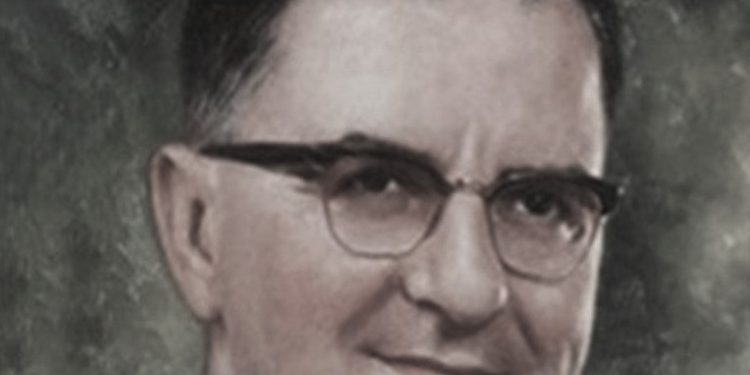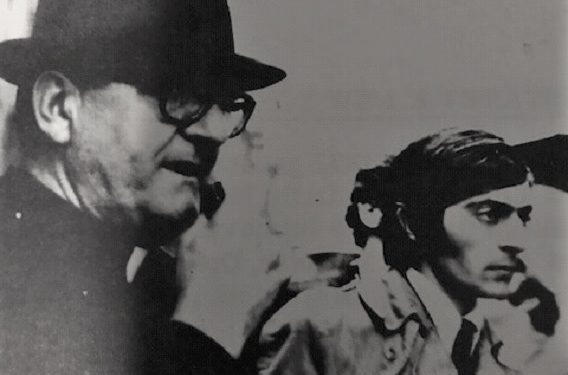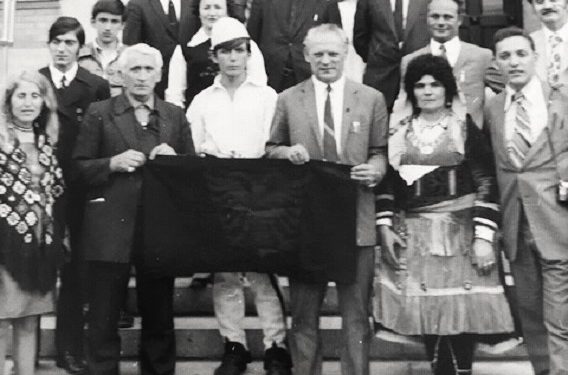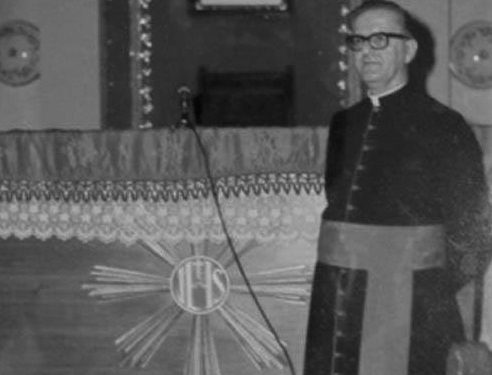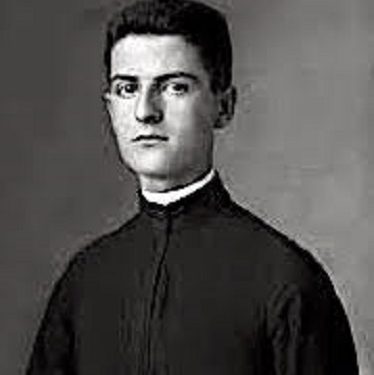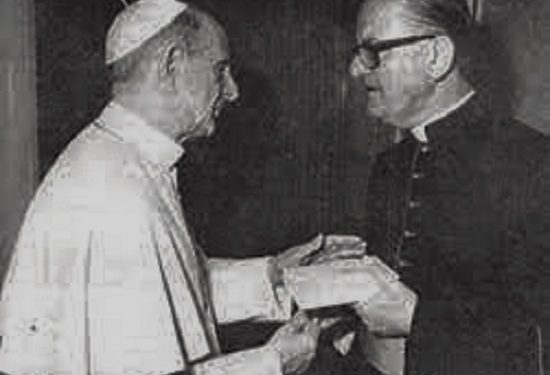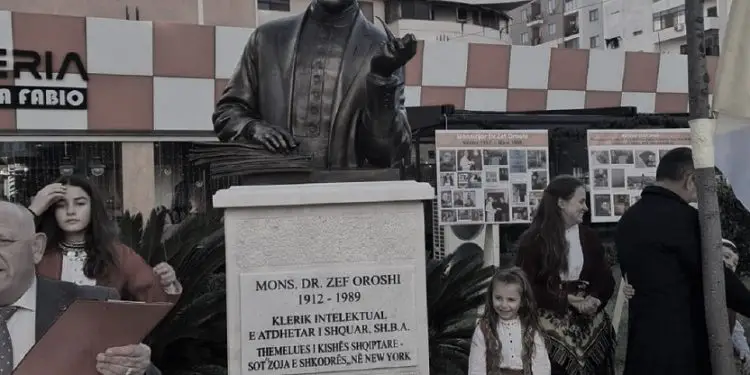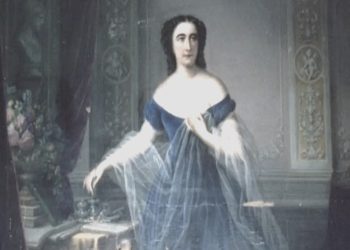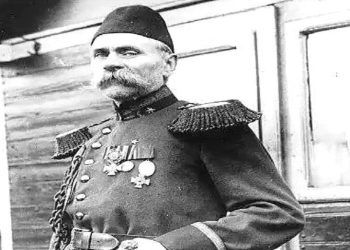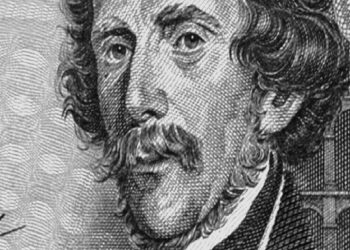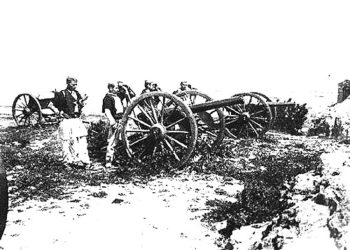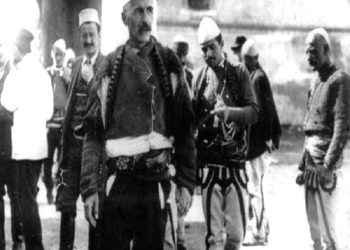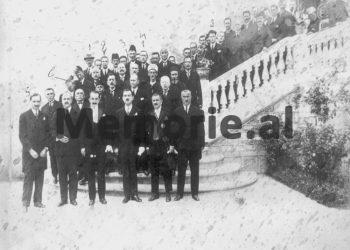By Prof. Peter Mark
Memorie.al / It is a fact that in the analyzes and studies on the historical figures of the Albanian nation, oral traditions have also been used. For Monsignor Dr. Zef Oroshin, about his activity, mission and life, we are presenting previously untouched or undocumented data, based on oral traditions transmitted from generation to generation, until today. These data (word of mouth) have been preserved by his family members and people closest to him, without distortions and exaggerations. They are undeniable truths, because they came from the mouth of his mother, brothers, sisters, aunts, nephews, nieces, his closest friends and associates and some of them, contemporaries of our Catholic prelate.
The genealogical tree of the Monsignor Dr. family Zef Oroshit
Oroshi, there are twelve tribes. Among these tribes, the Choku tribe is among the oldest. They lived in two settlements, in Lajthiza and in Law. Today, in these two settlements there are heirs of the old tribe. For reasons we do not know, from the trunk of this tribe, they migrated to the village of Korthpulë to live, Prend Pjetër Çoku, called “The Great House”.
Today, there are family members and properties of this house. But according to Prof. Dr. Mark Tirta, in the work: “Old Mirdita, emigration of its population”, he quotes: “Çoku i Oroshi, consists of a local branch (Pal Çoku e Çoka e Lajthize) and on the other hand, there are supported branches, coming from Korthpula e Dibri and, from Pulaj e Selita (Immigration within Mirdita)”.
It should be mentioned that the Monsignor is known by two surnames, the surname Choku (the name of the tribe) and the other surname; Oroshi (Orosh village of Mirdita). The Choku tribe is from Oroshi, among the oldest tribes. But at the same time, the emigrations in some cases have not been successful and there have been families that have returned from Korthpula and, from Pulaj, to the old lands, forming supported branches.
The ancestors and descendants of Monsignor Dr. Zef Oroshit, lived in Kaftall and were known as the family of Gjok Prendi. Today, this large family is scattered throughout Albania and emigration, keeping the surname Prendi. Today, in the village of Kaftall, they have their properties, inherited from generation to generation. The history of this glorious tribe is hundreds of years old.
The father inherited two descendants: Gjoka (father of Mons. Dr. Zef Oroshi) and Bardhja (monsignor’s aunt).
The grandmother of our prelate, Dila, is the sister of Gjon Kol Prend, from Dushi i Epërm, Bardhja (aunt), was married in the village of Gjobardhaj (district: Shpaze), her husband, Mark Zef Marku, with an heir, Zef Mark Zephy. (Grandson of Mons. Dr. Zef Oroshi.).
Gjoka, has descendants: Prend, Zefi (Monsignor), Ndoji and Luke.
The father has descendants: Peter, Gjoka, John and Mark.
Ndoj has descendants: Marie, Dave, Nikolla and Ndoji.
Today, the descendants have been added younger and younger and scattered everywhere, in Albania and emigration.
The family members persecuted by the communist regime are: Prendi, Zefi, Ndoj, Lukja and their descendants.
Episodes of the life of Monsignor Dr. Zef Oroshit in Albania
– Blessing from God –
From aunt Bardhe and Sister Luke, we have heard several times, in the conversations they held together, about the life of this family, emphasizing that the events that happened there are; blessing from God. Sufferings, difficulties, sacrifices for survival on the one hand, and the privileges and good things achieved, not given, but acquired with knowledge, with effort, both coexist, completing the ordeal of life, of this noble family of the day.
Gjok Prendi (Monsignor’s father), dies at a very young age, leaving orphaned children and widow Dila. The children were very young. But soon the blessing from God knocks on the door. The delegate of Shkodra, Dom Engjëll Serreqi S.J, took little Zefi to the city of Shkodra, where he enrolled him in the Pontifical (Jesuit) Seminary, which regularly prepared students for young priests.
Monsignor, – Aunt Bardhe told me, – was a very smart child with a very good physical development. The delegate from Shkodra asked mother Dilë to send him to school and Mother Dilë agreed. He completed his initial studies in Kaftall.
He started his secondary studies in 1927, at the well-known “Saverian” Seminary, founded in 1859, of the “Jesuit Order” (S.J.) in Shkodër and finished it in 1937. During his education, he excelled as a very good student good. The formation of his personality was greatly influenced by his teachers, prominent patriots, such as: the poet of sweetness, Dom Ndre Mjeda and the national poet, Father Gjergj Fishta, O.F.M.
Mother Dilë, together with the other children, gave Zefi the blessing to continue the high school of the Jesuits in Italy. In higher studies, he again stood out as one of the best students. In 1940, he finished his higher studies in Italy and was ordained a priest, as a missionary or spiritual shepherd, of the Catholic Church. This was God’s second blessing for this noble family.
How did he escape the siege of the State Security, in the Hungarian church?!
Monsignor Dr. Zef Oroshi, with his religious, patriotic and anti-communist activity, had become the biggest opponent of the communist government. He had close ties with the “Mountains Committee”, which at the time was led by the commander of Mirdita, Mark Gjomarku, and with all the anti-communists who were against the brutal communist regime.
Monsignor, after the murder of the two brave men of the mountains, the Captains of Mirdita, Mark and Llesh Gjomarku, was immediately appointed as the commander of the “Mountains Committee”. The prominent Mirditor prelate was a missionary, inspiring anti-communist resistance squads with weapons in hand, against the communist regime of Enver Hoxha.
Thus according to Zef Mark Zefi (his contemporary and nephew and who served him), Dom Zefi, had created his own network of people who provided him with information about the activity of the State Security against him. He was always one step ahead of them. At that time, Dom Zef Oroshi was giving mass in front of the people, inside the church.
After the mass began, the church was secretly surrounded by the State Security and it was decided by them in advance that his arrest would take place after the mass. Half an hour before mass ended, someone gave Dom Zefi a letter, telling him that you are surrounded by numerous State Security forces. This was accurate information from his trusted people. The back room of the church had a disguised door. Dom Zefi, there were weapons nearby, which were placed before the mass began, for any case of self-defense.
He was always prepared, in church and everywhere. The priest of our village was cool and calm during the mass. Time was enough to leave the church. Before the end of the mass, he went into the back room and through the disguised door, armed with a pistol and grenades, he left the church, and entered the cell, where he met Sister Luke and told her that he was surrounded by Follow-up forces and those of the State Security.
Afterwards, he went out into the nearby forest covered with oaks and bushes. The wooded terrain became an ally, to save the priest of our village from the siege. The Hungarian people, a patriotic, noble, generous and faithful people, saved our priest’s life in his most difficult moments. It is a unique case in the history of the Albanian lands, therefore I think that the noble people of Hungary deserve glory and honor for life.
The first three weeks on the run, sheltered in the mountain in the village (Gjobardhaj) neighborhood “Shpaze”
The priest Dom Zef Oroshi, in this village, married his aunt, Bardhe, in the house of Mark Zef Mark. The family had only one son, Zefi, his grandson, who has served our parish priest most faithfully and devotedly in prison in Hungary. There, Zefi learned writing, reading and arithmetic.
Having faith and security, he took shelter in the forest, above the house of Mark Zef Markut (groom). At this time, the communist regime, through the State Security and its people everywhere, was on the move day and night. The family of Mark Zef Mark was under observation, guarded by the State Security forces. Zefi (son), during this period served as a liaison officer until he left this shelter.
He has been supplied with food and clothing for three weeks by Aunt Bardhe. After he connected with his associates and planned and ensured the movements, they parted ways forever with his son-in-law, aunt Bardhe and nephew Zef. The parting of the ways was the decision of Dom Zef Oroshi, because the nephew was the only brother and he refused to take him on the run.
The anti-communist activity and military preparation of Dom Zef Oroshi
Zefi (nephew) told about Dom Zef Oroshi: “He spent his free time, day and night, studying many books of the church, military art, literature, etc. Besides reading them, he took and kept notes. He studied historical books a lot, especially those about wars, about the most prominent generals, about strategies and war plans.
It studied the basic elements of warfare, the ambush, the siege, the breach of the siege, marches and security in motion, movements on the field of battle, attack and defense. He knew guerrilla warfare very well. He mastered the military art, theoretically and practically. He took measures to defend himself, to break the siege, to protect and secure the cell. Physically he was powerful and very fast. He was an innovator, successful organizer and leader. He was the right man to lead the “Mountains Committee” after the murder of two brothers, Gjomarkaj.
He held meetings with the most talented people of the Ungrej and Mirdita area. The meetings and connections were with anti-communists, opponents of the communist regime. He was in contact with special persons of the State Security. He made the most of friendship, meetings, lunches on both sides, alone, to provide information, in the service of his mission. Among the missionaries of the Catholic Church, he was the most unique. He was a leader, a true warrior, invincible and very brave.
During the religious mission, he discovered many intrigues and infidelities, but he successfully destroyed them. He deftly defeated the siege in the church when they tried to arrest him, was wounded twice and escaped the ambushes. According to eyewitnesses in the battles, in the field of combat, in an effort to the City Castle with the State Security, he used the dead areas of the terrain, the speed, running and opened fire and was able to escape from the siege”.
Convictions and exiles of the family, in the period of the dictatorship
After eight months on the mountain, on the run, Dom Zefi manages to escape to Yugoslavia, together with his friends, in August 1952. In this period of time, the persecution of the family began with prisons, deportations and death under torture.
Prend Gjok Prendi; (elder brother), lived in Sheher i Lezha with his family. He was arrested in September 1952. He stayed in Lezha prison for approximately one year and was released. Very soon they are interned as a family, with mother Dilë, with Sister Luke, with Pjetri (eldest son), sending them to the Tepelena Camp. They have been in the camp for three years.
This period was an ordeal of suffering in isolation. Suffering for food, for water, for clothing, lack of minimum living conditions, psychological pressure, all kinds of physical pressures, being watched for every movement, questioned for every doubt. From the Tepelena Camp, they sent him as a family to exile, to the village of Pluk in Lushnja, where they stayed until the beginning of democracy, when they left there and concentrated in Tirana.
Ndue Gjok Prendi (younger brother). At the same time as Prendi, Dom Zefi’s younger brother, who lived with his family in the village of Kaftall, was arrested by the State Security. The arrest was made in the fall of 1952 and he was sent to the notorious Shkodra prison. During his stay in that prison, investigations, provocations, fraud and psychological pressure were used against him.
During the investigation, the investigators asked him to cooperate with the State Security, to manipulate the data, as they intended, but when Ndoj categorically refused, then the tortures were increased against him. The most inhumane tortures were used against him, such as: beatings with whips, boiled eggs under the armpits, pine needles in nails, etc. He has been without food and water for days.
In the winter of 1952-1953, he stayed longer in the isolation room, naked and barefoot, in dampness and without heating, in dirt and without sleep, with numerous wounds on his waist and in unbearable pain, being constantly beaten with a whip. From these tortures, he went into a coma several times in prison.
Ndoj’s body, with many external and internal wounds, with broken bones, with cold lungs, could not withstand the suffering, where he passed away, at the young age of 37, in February 1954.
It was a painful death of an innocent man, only because he had a brother, Dom Zef Oroshin, who escaped from communist Albania. In silence, friends, comrades, people of blood and the people, had created a deep hatred and indignation towards the communist regime. Ndoji’s family, nana Dilë remained a widow, while the two daughters and two sons remained orphans.
The persecution continued
The family of Dom Zef Oroshi was denied some basic human rights by the communist state. They did not have the right to speak, to education in high school and university, the right to be elected and to be elected (during the voting) nor to work, in any kind of job.
John (Prend’s son), for many different reasons, but in particular, he was not allowed to continue high school (being an excellent student), tried to escape to the North of Albania, but without success. He was sentenced to ten years in political prison. He served his sentence in the notorious Spaçi prison. During the persecution of this family, society in general was sensitive and respected them.
The communist state has continuously developed the class war. They were all under constant surveillance by the State Security forces or their spies…, in investigations until the beginnings of democracy.
Conclusions:
Monsignor Dr. Zef Oroshi and his family tree are the continuation of the noble tribe “Çoku”. He is the emblematic figure, the most prominent, the brightest and incomparable of the tribe and among the most prominent historical personalities of Mirdita. He dedicated his entire life in Albania and after escaping to Italy and the USA to the religious mission and the fight against the communist regime. Memorie.al




